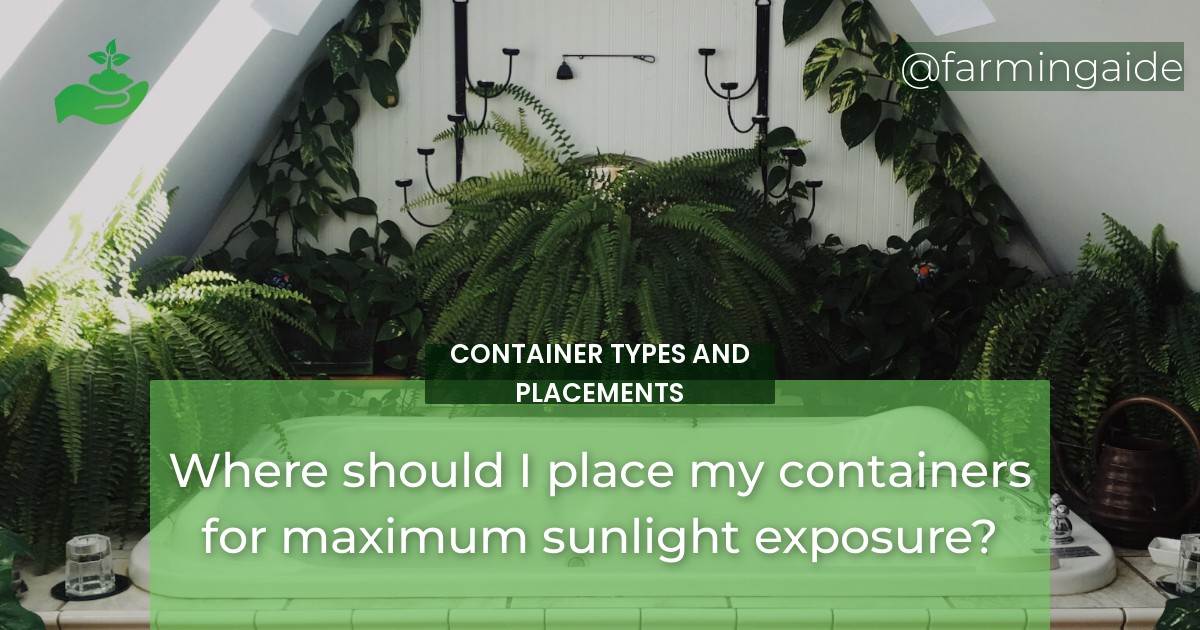When it comes to growing plants in containers, the placement of those containers can make all the difference in their growth and health. Maximizing sunlight exposure is one of the most important factors in determining where to place your containers.
Factors affecting sunlight exposure for containers
There are several factors that can affect the amount of sunlight your containers receive:
The angle of the sun and its movement throughout the day
The angle of the sun changes throughout the day, so it’s important to consider this when deciding where to place your containers. Generally, you want to place your containers in an area that receives full sun for the most amount of time during the day.
The presence of obstacles like buildings and trees
Obstacles such as buildings and trees can cast shadows over your containers, reducing the amount of sunlight they receive. Make sure to choose a location that is free from any obstructions.
The geographical location of the container
The geographical location of your container can have a big impact on the amount of sunlight it receives. Depending on where you live, the sun may be stronger in certain areas or at certain times of the day.
Ideal locations for container placement
Now that you know what factors can affect sunlight exposure, here are some ideal locations for container placement:
South-facing areas with minimal shading
South-facing areas receive the most sunlight throughout the day, making them an ideal location for container placement. Make sure there is minimal shading from any nearby structures or trees.
Elevated areas with unobstructed views of the sky
If a south-facing area isn’t an option, elevated areas with unobstructed views of the sky are the next best thing. This will help ensure that your containers receive as much sunlight as possible.
Open spaces with reflective surfaces
Open spaces with reflective surfaces, such as concrete or light-colored gravel, can help increase the amount of sunlight your containers receive. The reflective surfaces bounce light back onto your plants, providing them with even more sunlight.
ALSO READ
Tips for maximizing sunlight exposure
Here are some additional tips for maximizing sunlight exposure:
Use adjustable shading devices to control sunlight penetration
- Adjustable shading devices, such as shade cloth or umbrellas, can be used to control the amount of sunlight that reaches your containers. This can be especially helpful during the hottest parts of the day or during particularly sunny seasons.
Implement whitewashing or reflective coatings on container surfaces
- Whitewashing or applying reflective coatings to the surfaces of your containers can help increase the amount of sunlight they receive. The white or reflective surface will bounce sunlight back onto your plants, providing them with even more energy.
Monitor and adjust container placement periodically to account for seasonal changes in the sun’s position
- As the seasons change, the sun’s position in the sky will change as well. Make sure to periodically monitor and adjust the placement of your containers to ensure they are still receiving the optimal amount of sunlight throughout the year.
Conclusion
Optimal placement of containers for maximum sunlight exposure is critical for effective container use and can be achieved through careful consideration of various factors and implementation of targeted strategies. By choosing the right location and implementing the right techniques, you can help ensure that your plants thrive in their containers.
RELATED ARTICLES:


